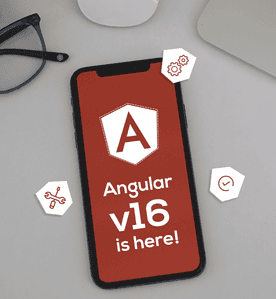Native Vs Cross-Platform Vs Hybrid App Development: What to Choose & Why?
Sector: Technology
Author: Shreyansh Shah
Date Published: 05/25/2020
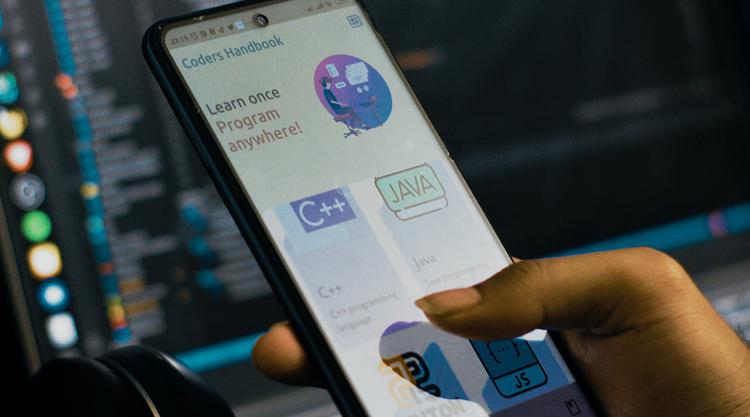
For a consumer, a journey of using an app begins from spotting or checking out an app on an app store.
But for a developer, that stage is only half the stream crossed. Developers and business people strive right from the ideation stage to roll out an app that is not just useful and relevant but easy to operate as well.
Behind every app you use, there has been a tremendous amount of effort and brainstorming put in to offer you the best of the services and features. For every app, a developer out there has debated over an important question – whether to prefer native app development, cross-platform app development or hybrid app development.
Over some time, we have also been receiving a lot of messages asking for the right development method small and medium businesses should prefer for the right app.
That’s when we decided it was time to share our insights with you. This post is all about helping you understand the difference among all these distinct development methods so you could make the best decision based on your project.
Native App Development
What is Native App Development?
Applications that are designed and built for one particular mobile operating system are termed as a native app. This involves the use of one particular programming language that is most ideal for the development of the app.
For instance, the ideal programming language for iOS app development would be Swift or Objective-C and the one for Android app development would be Kotlin or Java.
As a business owner, you should understand that native app development allows developers to leverage the complete potential of a device and its operating system to offer dynamic app experiences to users.
Now, this is not the case with hybrid or cross-platform app development.
Native applications are faster, smoother and more polished compared to their other two counterparts.
If you intend to roll out a high-performance or a feature-rich app, a wise move will be to opt for native app development.
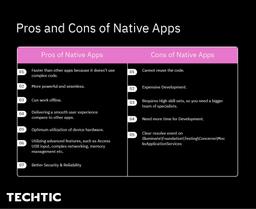
Advantages of Native App Development
- This does not involve the use of complex codes and that makes the apps faster than other apps. All the elements in your app function swiftly and smoothly because they are preloaded by default.
- Maintaining ideal aspect ratios is key to delivering a smooth user experience. In native app development, developers get access to layout features so they could tailor aspect ratios to diverse screen sizes.
- A native app harnesses the power and resources of a device’s hardware features, making the apps more powerful and seamless.
- The best advantage of native apps is that they can work offline. This means if you’re traveling in an airplane or when you are out of coverage, your app would still work.
Disadvantages of Native App Development
- A developer cannot reuse the code written to develop an Android app to build an iOS app. This means separate time-to-market for your app.
- Native app development requires finesse in skill sets and it is usually difficult to find such talent in the market.
- This also involves a heavy maintenance cost that is way more than the actual development cost – about 25% of the build expenses.
Examples of Native App Development
1. Google Maps:
This is the most ideal example of native apps. Google maps is available as a separate app for both Android and iOS and offers the same features and functionalities. It is powerful, makes the best use of your device’s hardware features and works offline as well. Some more examples of native app development are:
- Calculator, Notes and all other built-in applications of your system.
- Most of the mobile games of your system.
Cross-Platform App Development
Cross platform apps are the opposites of native apps. Unlike native apps, cross-platform app development involves the use of one code to develop and deploy across multiple platforms.
This neither involves individual development or platform-specific programming language.
This development class is a blessing for small and medium business owners as this immensely trims down your development costs and fits well within your budget.
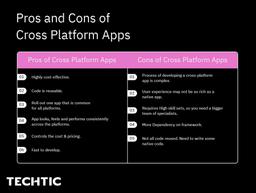
Advantages of Cross-Platform App Development
- This is highly cost-effective as the expenses involved in tools, the development processes and developers are comparatively less.
- Code is reusable, wherein a common code can be written for the deployment of both Android and iOS apps.
- You don’t face any restrictions in terms of which platform your customers use. You can roll out one app that is common for all.
- Your app looks, feels and performs consistently across the platforms. This is good for your brand image, identity and recall value.
Disadvantages of Cross-Platform App Development
- Despite the code reusability feature, the process of developing a cross-platform app is complex. A developer has to bear in mind the little differences across platforms and consistently try to bridge the differences to offer a single experience to users.
- Integrating these apps with local settings and a 3rd party cloud vendor becomes difficult.
- User experience may not be as rich as a native app but passable.
Examples of Cross-Platform App Development
1. Skype
The most popular video messenger, Skype is a cross-platform app developed using Electron. Not just in smartphones, Skype is cross-platform even in its PC avatar, where the code is shared between its Windows and Linux versions.
Skype has been constantly undergoing under-the-hood tweaks to ensure its performance and aesthetics resemble a native app. Some more examples of cross platform app development are:
- Alibaba
- Slack
Hybrid App Development
This is perhaps the most contemporary app development process. Truly a bridge, hybrid app development combines the power of web development and the resources of your device to offer you a unique online experience.
Technically, hybrid apps are developed using CSS, JavaScript and HTML5 (like in web development) and have shells at the same time to be app store ready.
Hybrid app development involves two components
- A backend code
- And a native viewer that has to be downloaded to display the functions and backend
There is no requirement of browsers to use hybrid apps and they can use APIs and plugins of your device.
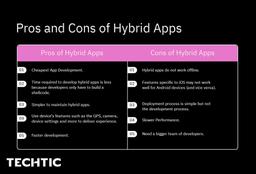
Advantages of Hybrid App Development
- Hybrid app development is the cheapest of the lot.
- The time required to develop hybrid apps is less because of the fact that a single code is deployed in the background. Developers only have to build a shellcode.
- Because they are based on web development technology, it is simpler to maintain hybrid apps.
- Hybrid apps can make use of a device’s features such as the GPS, camera, device settings and more to deliver experience.
Disadvantages of Hybrid App Development
- Unlike native apps, hybrid apps do not work offline. So, your customers would have to wait until they get an internet connection to use your app again.
- Due to the fact that a single code is deployed, some of the features specific to iOS may not work well for Android devices (and vice versa). However, this can be overcome with a lot of testing and identifications of inconsistencies.
- Only the deployment process is simple but not the development process. You need a web developer and a native app developer to build a single hybrid app.
Examples of Hybrid App Development
1. Instagram
The crowd-favorite Instagram is a hybrid app but you can’t use Instagram when there is no internet. Some more examples of hybrid app development are:
- Gmail
- Evernote
Wrapping Up
So, now you have a comprehensive understanding of what each development process is. You know your budget and your project type. We could safely assume that you would take the right decision to go ahead with your development process.
If this still sounds too technical, the best choice would be to approach with your ideas. We are pioneers in app development who would not only recommend the best process but help you in the development, too.
Reach out to us to find out how you could go about building your game-changing app.
Latest Tech Insights!
Join our newsletter for the latest updates, tips, and trends.





